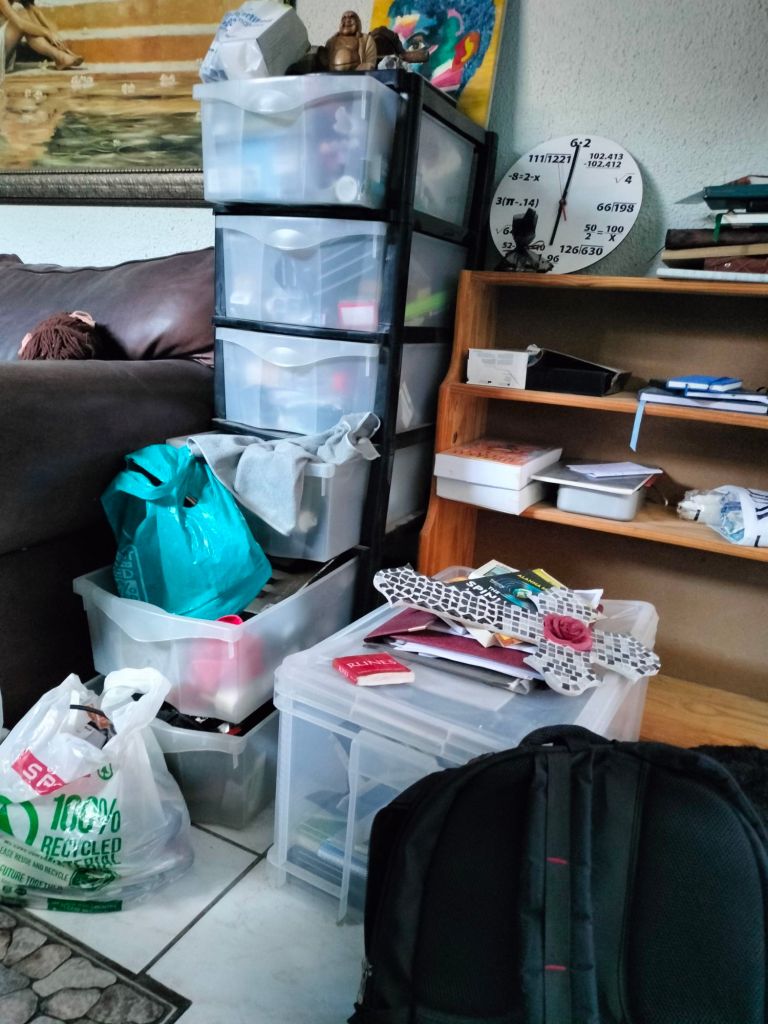Where can you reduce clutter in your life?
Where can I reduce clutter in my life? This question stirs a sense of possibility, a call to action that feels both urgent and filled with opportunity. As I reflect on it, the most immediate answer is my office space—a room that I love for its comfort and peacefulness but which currently feels burdened by the weight of its own disorder. There’s a tension here, a dissonance between the serenity I’ve cultivated and the clutter that stares back at me, particularly from the shelves. To the right of my desk, a cupboard with drawers ajar spills its contents in a way that disrupts the harmony I so value.

I’ve taken steps to address this; there’s a beautiful new bookcase ready to serve as a solution. Yet, instead of bringing clarity, its current state feels disjointed, its contents more of an eyesore than a reprieve. The potential to transform this space is immense, and the work feels both straightforward and daunting. There are objects I could throw away or donate, things I’ve outgrown, yet still hold onto. And it’s not just about creating a visually appealing environment—there’s a larger vision brewing. I imagine this space not only as an office but as a place where others can join me for meditation. If I shift things around, extend the boundaries of this area, and dedicate a corner exclusively to meditation, I could open it to shared moments of stillness and growth. But there’s a challenge here too: where will my current workspace go? These logistics require thought and careful planning.
The process of decluttering feels deeply symbolic. It’s not merely about clearing bookshelves or rearranging furniture—it’s about letting go of pieces of my past to make room for something new. Take my large bookcase, for instance, brimming with books I’ve treasured over the years. Each one holds meaning, a memory of a chapter in my life. Yet, how many of these books will I truly revisit? Perhaps it’s time to release them, to trust that their lessons have already shaped me. Letting go of them feels bittersweet, but also liberating—a chance to create the space I envision, both physically and emotionally.
This act of decluttering holds a promise: to craft a space that mirrors my intentions and aspirations, one where creativity and peace coexist. It’s an opportunity to unburden myself and, in doing so, create something new—not just a meditation corner, but a fresh perspective on what it means to truly live and work in harmony with my environment.
Decluttering is more than just tidying up; it’s a journey of self-reflection and transformation. As I work through the challenges of letting go and creating space for what truly matters, I invite you to reflect on your own spaces—physical, mental, or emotional. Where could you release what no longer serves you to make room for something new? I’d love to hear your thoughts, experiences, or even struggles with decluttering. Let’s inspire one another to create spaces that reflect our intentions and open the door to fresh possibilities. Share your journey in the comments—I’m excited to learn from you!

